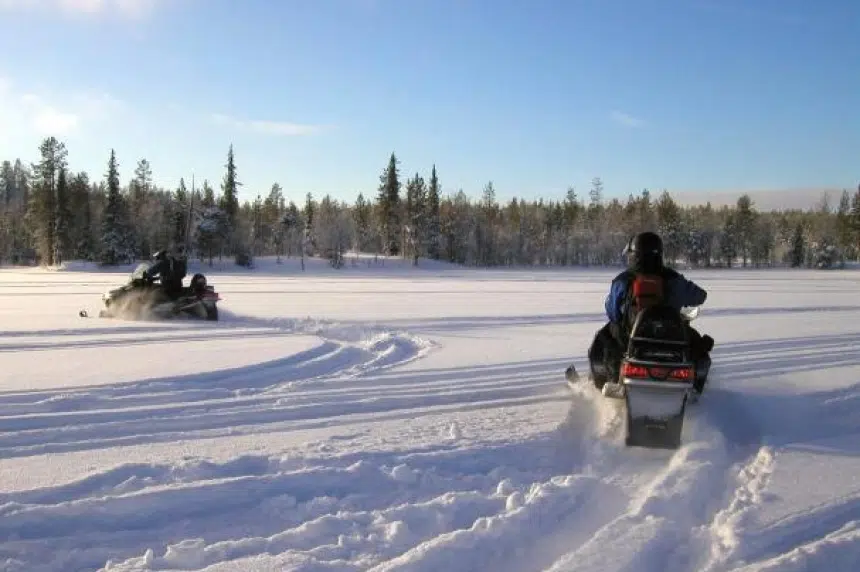As snowmobile and ATV riders head out in northern Saskatchewan, farmers are warning about the damage being done to their fields.
Dolores Buckingham and her husband, Mal, farm in the Rabbit Lake area. She said large stretches of land are now covered with around 20 inches of snow.
“People have anywhere from 1,000 acres to 3,000 acres out in the fields around here that haven’t been combined yet, so it’s a bad situation for the winter,” Buckingham said.
It’s a situation made worse with human interference as snowmobile and ATV riders have taken to cutting across their field, tearing up what could be harvested next spring.
“In their defence, they can’t see (the crops) unless they get right up to them, but we’re just concerned about them going onto property and destroying our livelihood,” Buckingham said.
The farming couple, who often snowmobile in the area, have posted signs for fellow riders to curb their enthusiasm to cross private property.
“Our fences have been cut where Ski-dooers are going through,” she said.
“People who have livestock, all of a sudden their livestock are running around. You know, it’s a danger to anyone who is out on the roadways.”
While preferred protocol for riding on fields is asking farmers first, Buckingham noted many people don’t abide by those rules.
The farmer said she’s frustrated because most riders use the nearby groomed trails, but “bad apples” are carving out unwanted paths.
“Once they make a track, then other people that are innocent come along and say, ‘Oh, someone Ski-dooed through there already,’ and then they head out in that direction as well.”
Buckingham said the buried crop has also become fodder for plenty of wildlife, which in turn has drawn hunters to the area.
Darrell Crabbe, the executive director of the Saskatchewan Wildlife Federation, said part of the hunting process is respecting landowner rights.
“We try to police ourselves a little bit and we certainly would recommend that if you see anybody doing something that ethically or legally they shouldn’t be doing – to call the tips line,” Crabbe said, noting response times are often faster this time of year as conservation officers are already out in rural areas.
“We always tell people the worst thing you can do is say, ‘Well there’s nothing I can do.’”
Hunters are advised to contact landowners for the areas in which they plan to hunt.
People can report tips online or by calling 1-800-667-7561.







